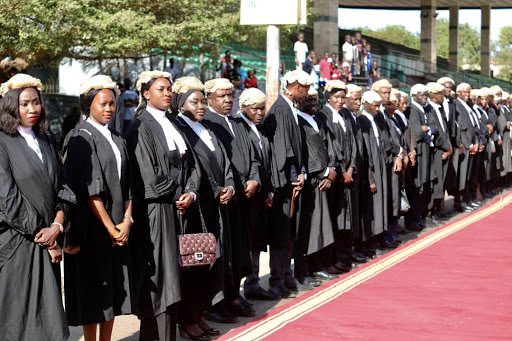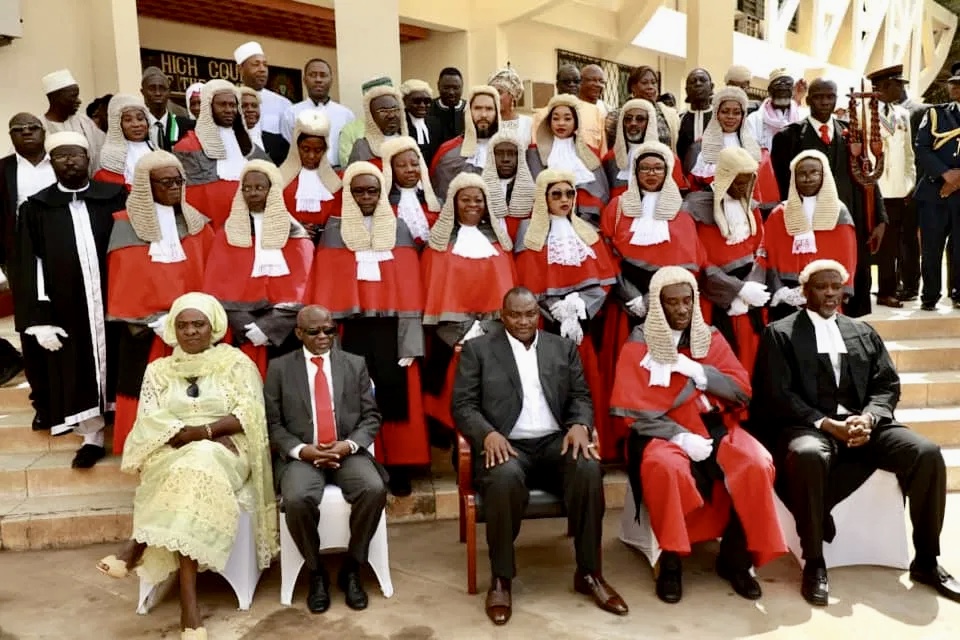
Lawyers must stand up for what is true, what is honourable, what is right, what is pure, what is of good repute, what is excellent and worthy of praise. This is the transcendent essence of the lawyers’ oath.
When judges and lawyers hesitate to do the right thing for fear of being derogated for the company they keep, or when they respond to vilification, threats, and actual violence with surrender and capitulation, the rule of law is shoved out, and impunity steps in our daily lives.
Silence is esteemed for its eloquence, but tolerating abuse of power and erosion of the rule of law and abuse of innocents’ human rights calls for courageous marches and eloquent voices of protest that would shame Mark Anthony in Shakespeare’s Julius Caesar.
Of all things, under the watch of the Gambia Bar Association during Yahya Jammeh’s rule, the reason is immortal, rights are sacred, and law objectively pure, and all must serve their purpose.
The death of Deyda Hydara, the attempted assassination of senior counsel Ousman Sillah, the murder of state Minister Koro Ceesay, the killings of 14 defenseless school children, and the arson attack on independent media houses, to name a few instances, call a nation to action and must stir us to such points that sleep or awake; we must in good measure condemn every kind of evil that mostly threatens or diminishes life.
Gambian lawyers are expected to be courageous amid difficult times and to do the right thing and uphold the rule of law to prevent a culture of impunity from spreading as it prevails under their watch during Yahya Jammeh’s twenty-two years rule.
Members of the legal fraternity yesterday dramatised filial reverence for life as they refused to join the struggle in fighting 22 years Yahya Jammeh’s kleptocratic rule; they were cozying with his regime without a fraternal depiction of anger or defiance at the state, following the dastardly and abhorrent murder of journalists other vulnerable citizens, who died as collateral damage monstrous scheme by the heartless known members in the state-sponsored security apparatus.
Respect for human life calls for no debate. It is a right most natural, and the Gambia Bar Association, which brazenly departed their traditional role of defending human rights, deserves not to retain any credibility today.
The wrath of criminal law should descend upon such men who remain silent when they were most needed, that they must not be permitted to live and breed after their kind.

In a world where ‘alternative facts’ and ‘hyperbole’ are fast blurring the lines between truth and lies, lawyers who can help the courts, clients, and the public sift truth from lies performs a valuable service to the citizenry.
In the reality of challenging and violent times, Gambians find themselves combating impunity and promoting the rule of law and the law of hope; the Gambian people expect a lawyer’s role in bringing out the truth, especially in this age when fake information abounds.
Good lawyers should not hesitate to swim against the tide by challenging the status quo occasionally, confront traditions that may have taken root through inertia and, if necessary, create new traditions of preventing impunity.
Gambians are not fighting against a person or an establishment. Instead, Gambians are fighting against a culture, a way of thinking, of seeing, and thus of acting – or not acting.
We expect more from Gambian lawyers. I believe enforcement of citizens’ fundamental human rights in the Gambia should not be left alone to lawyers.
I believe that the minimum standards expected by human rights lawyers are to safeguard the profession’s fundamental principles, including independence, freedom of opinion, and self-governance.
Freedom and independence of lawyers are the necessary pillars for establishing and maintaining the rule of law. Lawyers and the role of Bar also must include in the daily struggles and consolidation of the restoration of Democracy, the supremacy of the constitution, independence of the judiciary, and political, defend human rights of minorities and the oppressed people.
For example, we expect to see in the Gambia that lawyers like the late Gani Fawehinmi and Femi Falana were the best-known human-rights attorneys in Nigeria. They became leaders of the pro-democracy movements that protested the de facto state of emergency imposed by the then brutal dictator Gen. Sani Abacha.
Catriona Rogan wrote in the Washington Times titled “Nigeria Outsider who will be Insider” wrote of Gani as follows under the caption “Fawehinmi challenges military in the street.” He was referred to as “Nigeria’s “Steve Biko”, Chief Fawehinmi is a larger-than-life lawyer with a track record of defending human rights activities, including the ethnic Ogoni, who have fought Shell oil which drills in their homeland near the Niger River delta over the environment issues”. This is what is absent from the Gambian Bar.
Impunity is a culture that is ingrained and deeply rooted; it is a culture that started when people started to look the other way; a culture that thrived when people stopped caring, a culture that prevailed when people stopped hoping.
To fight this culture, our lawyers must stand up for what is real and what is right and speak up and act when others refuse to do the same. They must also continue to hope even when others have given up.
By Alagi Yorro Jallow











Recent Comments